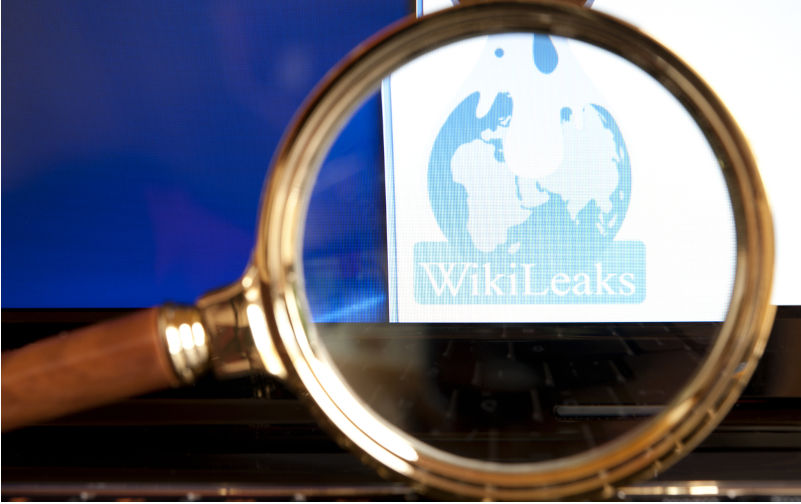Assange - the aftermath
July 2, 2024
On March 12 last year, former Australian Foreign Minister Bob Carr summed up why the Americans were determined to send the now free Julian Assange to a maximum security jail for over 170 years.
Asked by the now retired ABC broadcaster Philip Adams: “ Why is Julian Assange still there [Belmarsh prison]? Why is the US so determined to hold him?”, Carr replied;
“It’s almost a self-loathing in one corner of the American security state. At a time when American dominance, leadership, primacy is challenged, not least because of their own seething pathologies, and… America with the manifestations of a failed state. Assange getting away with exposing an American war crime. An undoubted American war crime. You can see it on video by typing in Collateral Murder. American serviceman from an Apache helicopter killing civilians, shooting twelve civilians on the ground during the appalling war in Iraq.”
Carr got it in one. Yet despite what should be unchallengeable logic and reasoning, there are still those in Australia who see Assange as an enemy. These include, most prominently, the Nine newspapers columnist Peter Hartcher, a reliable scribbler for the security and defence establishment in this country, and the former head of the defence industry funded think tank ASPI, Peter Jennings.
On the weekend Hartcher, writing in his Saturday column (which reminds one of those lengthy ‘essays’ from the Australian’s Paul Kelly in their being in need of a good edit), trotted out the usual estabouishment ‘complaints’ and smears about, and of, Assange. Firstly, Assange’s “claims to be a journalist is hotly contested by actual journalists,” writes Hartcher. Forgetting conveniently that the WikiLeaks organisation was given Australia’s top journalists’ award, a Walkley, in 2011. In fact in 2019 the Walkley Foundation issued a statement, after Assange was unlawfully removed from the Ecuadorean Embassy in London where he had sought asylum in 2012. That statement noted that “Wikileaks, with Julian Assange as its editor, received a Walkley Award in Australia for its outstanding contribution to journalism. Walkley judges said Wikileaks applied new technology to “penetrate the inner workings of government to reveal an avalanche of inconvenient truths in a global publishing coup”. One of those many inconvenient truths was the exposure by video of US helicopter attacks in Baghdad that killed 11 civilians including two Reuters journalists.” Perhaps Mr Hartcher forgot that inconvenient truth.
Then Hartcher, to bolster his claim, quotes Australian journalist Peter Greste, once, jailed in Egypt on false charges, and who is now an academic. I have spoken with Greste and met with him, along with my Australian Campaign colleagues. He is not, these days, fixated on whether Assange is a journalist or publisher and told us as much in an online meeting held on 6 February 2023.
But most disturbing is Hartcher’s clear parroting of the Canberra lines about what a reckless individual Assange was and remains. “ Assange may be out of jail, but in Australian public life he is on probation. Is he capable of actual, ethical journalism? How will he repay the Australian government for its intense efforts in his cause – for having “saved” his life?”, Hartcher writes, after reciting a litany of ‘faults’ about WikiLeaks publications such as the 2016 Democratic National Committee emails. Which, by the way, did not enable Trump’s election. It was Clinton’s incapacity to connect with those who didn’t work at Goldman Sachs or in Silicon Valley that was the problem.
But there you have it, ‘Justice Hartcher’ sentences Assange to probation. The patronising tone of Hartcher is not unusual, but it does demonstrates just how out of touch this journalist really is. He is ignoring the House of Representatives resolution in support of Assange earlier this year which was passed 86 to 42, and which reflected what we, in the Assange Australian campaign were picking up. That is, the vast majority of Australians wanted Assange home.
No doubt Hartcher’s ‘judgement’ will be welcomed by his friends in the Department of Defence, in DFAT and in the security agencies. Many in those worlds would love to see Assange behind bars again.
That this is their thinking is demonstrated by one of their number, Peter Jennings, the former ASPI boss. Like Hartcher, Jennings, writing in The Australian on Saturday, runs the defence and security establishment line against Assange. Except that Jennings’ attack is disgraceful. As a former Defence official at the time of the release of military reports by Wikileaks about Afghanistan and Iraq in 2010 and 2011. Jennings rattles off the names of sadly departed Australian soldiers and then says, “It is by no means clear that the material put online by Assange did not cause deaths.” This is a smear and Jennings must know that. There is no evidence that Assange caused deaths through his revelations about clear cases of misconduct by the US and its allies in both those theatres of war.
And why bother to publish Jennings anyway? His views are as predictable as that of his former employer, ASPI.
Assange has done the world a favour. It is critical that we all know what happens when our governments, in our name, undertake military and security operations. Particularly so in the case of Australia which is pathetically joined at the hip in any Washington adventurism.
Greg Barns has, since 2013, been an adviser to the Australian Assange Campaign.

